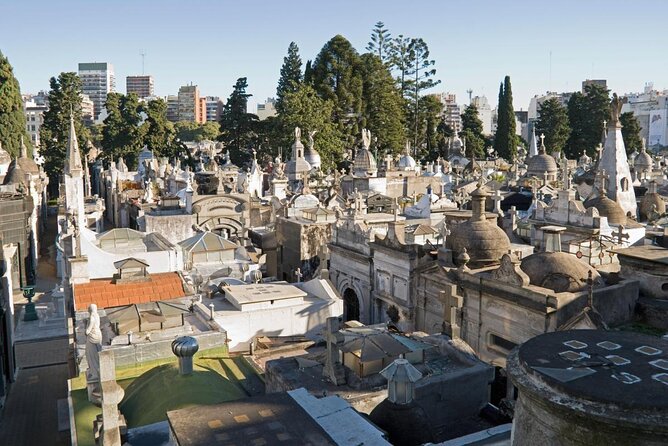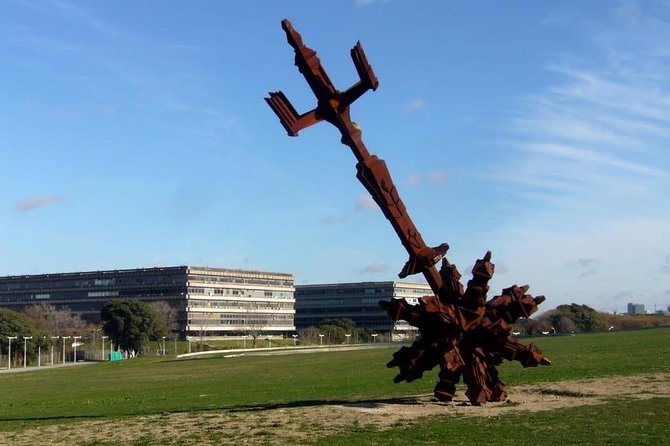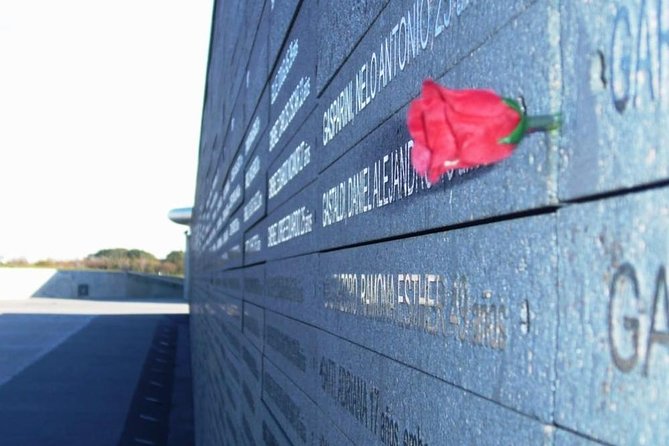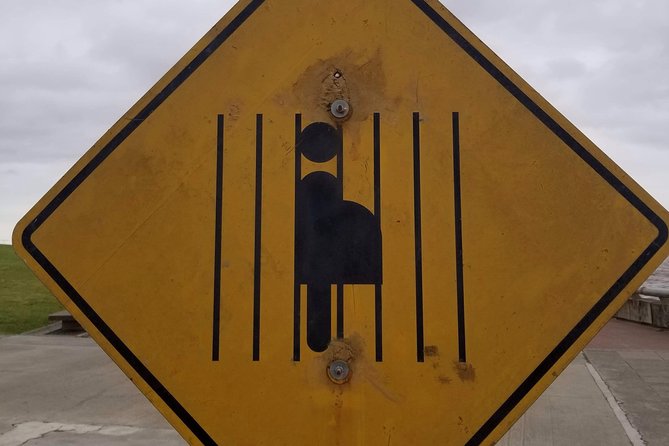Buenos Aires the Dark Years of the Dirty War
Step into the shadows of Buenos Aires during the dark years of the Dirty War, where echoes of the past linger like silent ghosts in the city’s streets.
As the sun sets on a chapter of history stained with brutality and oppression, the secrets buried within the whispers of the night beg to be unearthed.
Unravel the enigmatic tale of Argentina’s tumultuous past and discover the untold stories that lie hidden beneath the surface, waiting to shed light on the complexities of a nation scarred by its history.
Key Points

- The Dirty War’s impact lingers in Buenos Aires
- Remembering victims through tributes and advocacy
- Essential to tour key sites for deeper understanding
- Travelers can engage with history and honor victims
Historical Background of the Dirty War

What led to the dark years of the Dirty War in Buenos Aires, Argentina?
The historical context of the Dirty War in Buenos Aires dates back to the military dictatorship that ruled Argentina from 1976 to 1983. During this period, the government launched a campaign of state terrorism against suspected dissidents, resulting in the violation of human rights on a massive scale.
Thousands of people were forcibly disappeared, tortured, and killed by the authorities. The Dirty War represents a dark chapter in Argentine history, marked by widespread repression and censorship.
Understanding this historical background is crucial for visitors to grasp the significance of the key sites associated with this tragic period in Buenos Aires.
Key Sites to Visit in Buenos Aires
Exploring Buenos Aires’ key sites associated with the Dark Years of the Dirty War offers visitors a poignant journey through Argentina’s tumultuous history. Cultural landmarks like the Recoleta Cemetery, where some victims of the Dirty War were buried, provide a solemn reminder of the past.
Political unrest is palpable at the former clandestine detention center turned Memory Museum, ESMA, showcasing the horrors endured by many during the military dictatorship. Plaza de Mayo, a historic square where mothers of the disappeared gathered, stands as a symbol of resilience and activism.
Visitors can also witness the impact of the era at the Metropolitan Cathedral, where Pope Francis served during those turbulent times. These key sites in Buenos Aires serve as powerful reminders of a dark chapter in Argentina’s history.
Impact of the Military Dictatorship

During the military dictatorship in Argentina, the impact on society was profound and long-lasting, shaping the country’s history in ways that continue to reverberate today.
The regime’s brutal tactics led to widespread human rights abuses, with thousands of individuals disappearing without a trace, leaving families devastated and communities in fear.
Political repression was rampant, silencing dissent and instilling a culture of fear and silence that persisted long after the dictatorship ended.
The military’s grip on power left scars on the nation’s psyche, with trust in institutions shattered and a legacy of trauma that still haunts Argentine society.
The repercussions of this dark period are felt in the ongoing quest for justice and remembrance, as the country continues to grapple with the wounds of its past.
Remembering the Victims of the Dirty War
In honoring the memory of those lost during the Dirty War, Argentina persists in its solemn duty to preserve the stories and legacies of the victims. The nation pays homage through various means, including victim tributes and memorial sites where families and friends can remember their loved ones.
Survivor testimonies play a crucial role in shedding light on the atrocities committed and advocating for human rights, keeping the memory of the victims alive. These stories serve as a powerful reminder of the importance of justice and accountability in preventing such tragedies from happening again in the future.
Through these efforts, Argentina continues to honor the victims of the Dirty War and ensure that their voices aren’t forgotten.
Tour Details and Traveler Reviews
Honoring the victims’ memory through guided tours and traveler reviews sheds light on Argentina’s dark years of the Dirty War. Tourists can explore the country’s history by exploring key sites like the Rose Garden, understanding the rise of Evita and Juan Peron, and learning about the disappeared at Remembrance Park, all while gaining local insights from knowledgeable guides. Traveler reviews, with an overall rating of 5.0, offer valuable perspectives on tour experiences, enriching the understanding of this tragic period in Argentina’s past. Below is a table summarizing the tour details and traveler reviews:
| Tour Details | Traveler Reviews |
|---|---|
| Guided Tour | Overall Rating: 5.0 |
| Hotel Pickup Available | Reviews: 8 |
| Rose Garden Visit | Ratings: 1-5 stars |
| Evita and Peron History | Reviewed on Viator |
| Remembrance Park Visit | Viator Travelers |
Common questions

How Has the Legacy of the Dirty War Impacted Modern Argentine Society and Politics?
The legacy of the Dirty War has deeply impacted modern Argentine society and politics. Its effects are evident in education, where efforts are made to remember and learn from the past, and in the political realm, shaping policies and fostering activism.
Are There Any Ongoing Efforts to Seek Justice for the Victims of the Dirty War?
Efforts for justice are ongoing through truth commissions. These initiatives seek accountability for the victims of the Dirty War. By investigating past atrocities and promoting transparency, these endeavors strive to bring closure and healing to affected communities.
What Role Did the International Community Play During Argentina’s Military Dictatorship?
The international community played a crucial role during Argentina’s military dictatorship by supporting truth commissions to uncover human rights violations. Economic sanctions imposed pressure for accountability. These efforts aimed to bring justice and shed light on the atrocities committed.
How Has the Memory of the Disappeared Been Preserved in Contemporary Buenos Aires?
In Buenos Aires, memory preservation of the disappeared is a testament to social activism. Through memorials, art, and education, the community honors and remembers those lost during the dark period, ensuring their stories are never forgotten.
Are There Any Specific Monuments or Memorials Dedicated to the Victims of the Dirty War in Buenos Aires?
Monument tributes and memorial sites in Buenos Aires honor the victims of the Dirty War. These poignant landmarks serve as reminders of the tragic past and provide a space for reflection and remembrance in the city.
Last Words
Step back in time and uncover the haunting history of Argentina’s Dirty War with a guided tour through Buenos Aires.
Explore key sites, learn about the impact of the military dictatorship, and pay tribute to the victims of this dark chapter in the country’s past.
Gain a deeper understanding of Argentina’s complex political landscape and the resilience of its people.
Book this immersive experience to explore a crucial period that continues to shape the nation today.